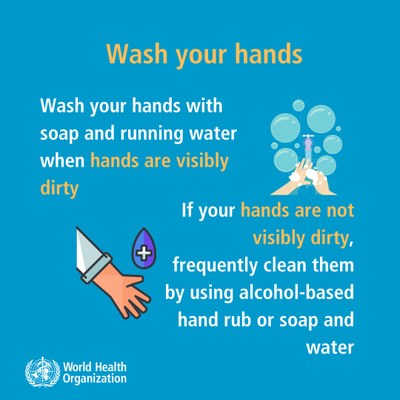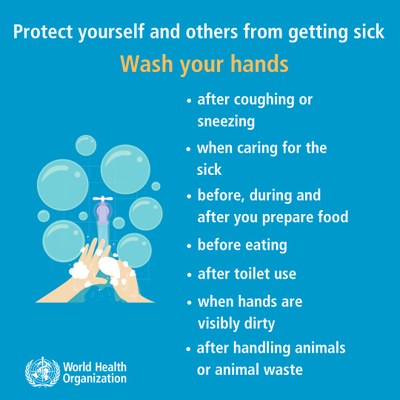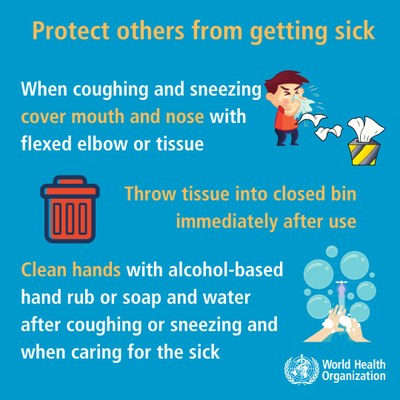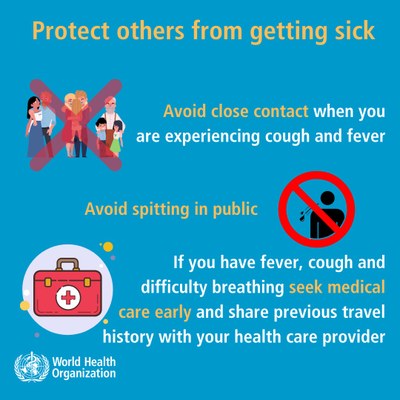Focus on updated information
Alitalia special flights for repatriation of Italian citizen
Information on Alitalia flights for repatriation of Italian citizen
Italian Government - Presidency of the Council of Ministers
Covid-19, the measures taken by the Italian Government
#ImStayingHome Decree
FAQs on the Italian Government’s
Italian nationals returning to Italy and foreigners in Italy
COVID-19 Emergency: Information from Embassies and Consulates
Webpages dedicated to COVID-19 emergency published by the diplomatic and consular network
Italian nationals returning to Italy and foreigners in Italy
Information for exchange students and staff
What is Coronavirus
It is a new coronavirus strain which causes a respiratory disease. The outbreak of coronavirus was identified in Wuhan, in the Chinese province of Hubei.
The coronavirus family comprises several strains which can affect humans and some animal species. Coronaviruses strains affecting animals can rarely be trasmitted to humans, however this had happened with MERS-CoV, SARS-CoV, and the current COVID-19.
The International Committee on Taxonomy of Viruses (ICTV) has called the new coronavirus "Severe acute respiratory syndrome coronavirus 2" (SARS-CoV-2).
Data about the coronavirus genomic characterization show that SARS-CoV-2 is a betacoronavirus and, like MERS and SARS, it may have its origin in bats. For more information visit the Centers for Disease Control and Prevention (CDC) web site.
The University of Bologna follows the virus outbreak through the official channel of the Ministry of Health and the World Health Organization website.
FAQs about Coronavirus SARS-CoV-2 outbreak
How does the coronavirus spread?
Human to human contagion mainly happens via respiratory droplets produced when an infected person coughs or sneezes, similar to how influenza and other respiratory pathogens spread. Similarly to SARS and MERS, the human to human spread has been confirmed through close contact.
Symptoms
SARS-CoV-2 infections may result in symptoms ranging from mild, to severe with possible death. Symptoms may appear from to 2 to 14 days after exposure and include:
- fever;
- cough;
- shortness of breath.
Prevention
The World Health Organization recommends the following hygiene practices and preventive actions:
- Frequently clean your hands by using alcohol-based hand rub or soap and water;
- When coughing and sneezing cover your mouth and nose with flexed elbow or tissue – throw the tissue away immediately and wash your hands;
- Avoid close contact with anyone who has fever and cough;
- If you have fever, cough and difficulty breathing seek medical care early and share previous travel history with your health care provider.
Further information on the World Health Organization website.
Recommendation for students and staff members
If you are experiencing some of the symptoms (fever, cough, shortness of breath) you should:
- Immediately see a doctor or call the toll-free telephone number 1500 of the Italian Ministry of Health, the toll-free number of the Emilia-Romagna region 800.033.033 or 118.
- if you do not feel confident to speak in Italian with medical staff, you can fill in the following electronic form provided by the Public Health Services to be put in contact with an English or French speaking doctor.
- Avoid close contacts with other people and do not go to crowded places.
If you are not experiencing any of the symptoms:
We recommend students and staff who have recently come back from outbreak-hit areas (as per daily updates by the World Health Organization) to stay alert and monitor their health, checking their temperature and for other symptoms during the next 14 days after their return from risk areas. Moreover, we recommend a voluntary trust-based quarantine until those 14 days have passed.
Recommendation for visiting scholars, researchers and staff members
Visitors should monitor their health status carefully by taking their temperature and watching for other possible symptoms. In case off illness they should see a doctor or call the toll-free telephone number 1500 of the Italian Ministry of Health, the toll-free number of the Emilia-Romagna region 800.033.033 or, in case of emergency, 118.
If you do not feel confident to speak in Italian with medical staff, you can fill in the following electronic form provided by the Public Health Services to be put in contact with an English or French speaking doctor.
For any medical- or health-related issues you should call the toll free numbers, as indicated. For further non-medical information, the University of Bologna activated a specific email address: coronavirus@unibo.it.




Information for exchange students
Check the instructions provided by Italian authorities and those by hosting countries authorities about the possibility of returning to your home country.
Alitalia special flights for repatriation of Italian citizen
Notice for persons entering Italy
In order to counter the spread of the epidemiological emergency from COVID-19, all natural persons entering Italy by air, rail, sea and road transport, even if asymptomatic, are obliged to immediately communicate their entry in Italy to the Department of prevention of the Health Authority competent by territory, and are subject to sanitary surveillance and fiduciary isolation for a period of fourteen days.
In the event of COVID-19 symptoms occurring, they are furthermore obliged to report this situation promptly to the Health Authority through the specifically dedicated telephone numbers.
Find out more
-
Novel Coronavirus (SARS-CoV-2)
Countries with confirmed cases
Published - Information about Coronavirus on Epicentro - Il portale dell'epidemiologia per la sanità pubblica Published
